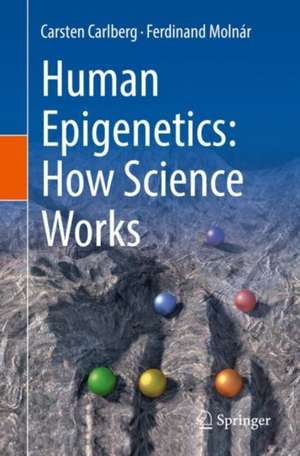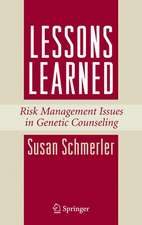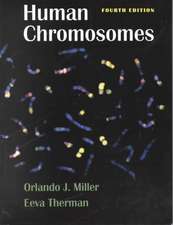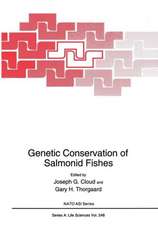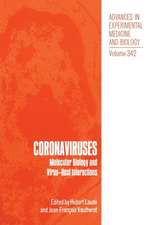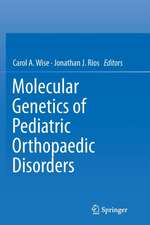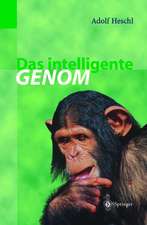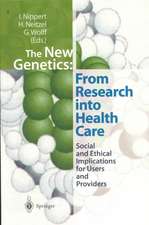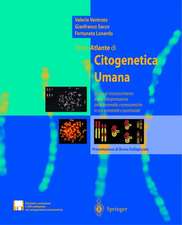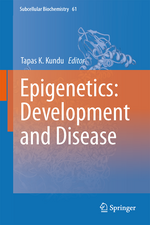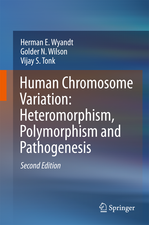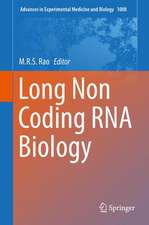Human Epigenetics: How Science Works
Autor Carsten Carlberg, Ferdinand Molnáren Limba Engleză Paperback – 5 oct 2019
The view “It’s all in our genes and we cannot change it” developed in the past 150 years since Gregor Mendel’s experiments with flowering pea plants. However, there is a special form of genetics, referred to as epigenetics, which does not involve any change of our genes but regulates how and when they are used. In the cell nucleus our genes are packed into chromatin, which is a complex of histone proteins and genomic DNA, representing the molecular basis of epigenetics. Our environment and lifestyle decisions influence the epigenetics of our cells and organs, i.e. epigenetics changes dynamically throughout our whole life. Thus, we have the chance to change our epigenetics in a positive as well as negative way and present the onset of diseases, such a type 2 diabetes or cancer.
This textbook provides a molecular explanation how our genome is connected with environmental signals. It outlines that epigenetic programming is a learning process that results in epigenetic memory in each of the cells of our body. The central importance of epigenetics during embryogenesis and cellular differentiation as well as in the process of aging and the risk for the development of cancer are discussed. Moreover, the role of the epigenome as a molecular storage of cellular events not only in the brain but also in metabolic organs and in the immune system is described.
The book represents an updated but simplified version of our textbook “Human Epigenomics” (ISBN 978-981-10-7614-8). The first five chapters explain the molecular basis of epigenetics, while the following seven chapters provide examples for the impact of epigenetics in human health and disease.
This textbook provides a molecular explanation how our genome is connected with environmental signals. It outlines that epigenetic programming is a learning process that results in epigenetic memory in each of the cells of our body. The central importance of epigenetics during embryogenesis and cellular differentiation as well as in the process of aging and the risk for the development of cancer are discussed. Moreover, the role of the epigenome as a molecular storage of cellular events not only in the brain but also in metabolic organs and in the immune system is described.
The book represents an updated but simplified version of our textbook “Human Epigenomics” (ISBN 978-981-10-7614-8). The first five chapters explain the molecular basis of epigenetics, while the following seven chapters provide examples for the impact of epigenetics in human health and disease.
Preț: 427.05 lei
Preț vechi: 514.51 lei
-17% Nou
Puncte Express: 641
Preț estimativ în valută:
81.71€ • 85.55$ • 67.61£
81.71€ • 85.55$ • 67.61£
Carte disponibilă
Livrare economică 15-29 martie
Livrare express 01-07 martie pentru 30.89 lei
Preluare comenzi: 021 569.72.76
Specificații
ISBN-13: 9783030229061
ISBN-10: 3030229068
Pagini: 160
Ilustrații: XVI, 153 p. 69 illus. in color.
Dimensiuni: 155 x 235 x 7 mm
Greutate: 0.45 kg
Ediția:1st ed. 2019
Editura: Springer International Publishing
Colecția Springer
Locul publicării:Cham, Switzerland
ISBN-10: 3030229068
Pagini: 160
Ilustrații: XVI, 153 p. 69 illus. in color.
Dimensiuni: 155 x 235 x 7 mm
Greutate: 0.45 kg
Ediția:1st ed. 2019
Editura: Springer International Publishing
Colecția Springer
Locul publicării:Cham, Switzerland
Cuprins
Introduction.- Chromatin and gene expression.- DNA methylation.- Histone modifications.- Chromatin modifying proteins and RNAs.- Embryogenesis and cellular differentiation.- Population epigenetics and aging.- Cancer epigenetics.- Neuroepigenetics.- Nutritional epigenetics.- Epigenetics of immune function.- Epigenome-environment interactions and their therapy.
Notă biografică
Carsten Carlberg graduated in 1989 with a Ph.D. in Biochemistry at the Free University Berlin (Germany). After positions as postdoc at Roche (Basel, Switzerland), group leader at the University of Geneva (Switzerland), and docent at the University of Düsseldorf (Germany) he is since 2000 Full Professor of Biochemistry at the University of Eastern Finland in Kuopio (Finland). His work focuses on mechanisms of gene regulation by nuclear hormones, in particular on vitamin D. At present Prof. Carlberg has projects on epigenome-wide effects of vitamin D on the human immune system.
Ferdinand Molnár received his Ph.D. in Biochemistry from the University of Kuopio (Kuopio, Finland) in 2006. He did his postdoctoral training in Structural Biology at the IGBMC (Illkirch, France). In 2008 he joined the School of Pharmacy at the University of Eastern Finland (Kuopio, Finland) studying nuclear receptor− ligand, −protein, and −DNA interactions. In 2018 he moved to the NazarbayevUniversity (Astana, Kazakhstan) where he holds an Associate Professor position at the Department of Biology. Prof. Molnár’s interests are integrative structural biology and bioinformatics, eukaryotic transcriptional regulation in health and disease, and recombinant protein production.
Textul de pe ultima copertă
The view “It’s all in our genes and we cannot change it” developed in the past 150 years since Gregor Mendel’s experiments with flowering pea plants. However, there is a special form of genetics, referred to as epigenetics, which does not involve any change of our genes but regulates how and when they are used. In the cell nucleus our genes are packed into chromatin, which is a complex of histone proteins and genomic DNA, representing the molecular basis of epigenetics. Our environment and lifestyle decisions influence the epigenetics of our cells and organs, i.e. epigenetics changes dynamically throughout our whole life. Thus, we have the chance to change our epigenetics in a positive as well as negative way and are able to prevent the onset of diseases, such a type 2 diabetes or cancer.
This book provides a molecular explanation how our genome is connected with environmental signals. It outlines that epigenetic programming is a learning process that results in epigenetic memory in each of the cells forming our body. The central importance of epigenetics during embryogenesis and cellular differentiation as well as in the process of aging and the risk for the development of cancer are discussed. Moreover, the role of the epigenome as a molecular storage of cellular events not only in the brain but also in metabolic organs and in the immune system is described.
The book represents an updated but simplified version of our textbook “Human Epigenomics” (ISBN 978-981-10-7614-8). The first five chapters explain the molecular basis of epigenetics, while the following seven chapters provide examples for the impact of epigenetics in human health and disease.
This book provides a molecular explanation how our genome is connected with environmental signals. It outlines that epigenetic programming is a learning process that results in epigenetic memory in each of the cells forming our body. The central importance of epigenetics during embryogenesis and cellular differentiation as well as in the process of aging and the risk for the development of cancer are discussed. Moreover, the role of the epigenome as a molecular storage of cellular events not only in the brain but also in metabolic organs and in the immune system is described.
The book represents an updated but simplified version of our textbook “Human Epigenomics” (ISBN 978-981-10-7614-8). The first five chapters explain the molecular basis of epigenetics, while the following seven chapters provide examples for the impact of epigenetics in human health and disease.
Caracteristici
Is the first undergraduate textbook on epigenetics with a clear focus on humans Links the "hot topic" epigenetics to numerous disciplines, such as embryogenesis, nutrition and neuroscience Describes the impact of epigenetics in health and disease Has a high ratio figures to text
